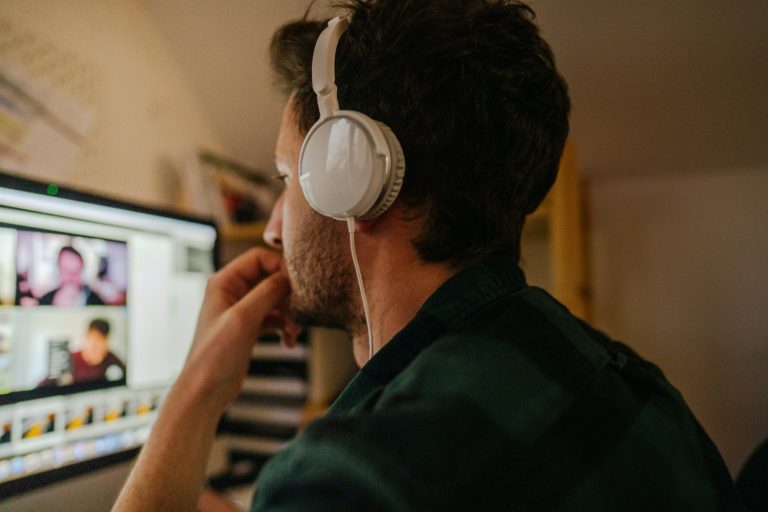Work After Covid-19: 5 Things We Know, What We Do Not Know – And How We Fill in the Unknowns

Thought leaders globally are now publishing their views on “the new normal”. Gloomy outlooks of mass joblessness according to some; remote work utopias according to others. The fact is, no one really knows. How will work change? What changes will persist, and what routines will we drop like a hot potato after the lockdown? At Hintsa there are some things we now know to be true, and others we can only guess at – these, we will put to a scientific test.
Work in times of Covid-19: what we know
The future is all but certain, especially now. But here’s what we now know to be true in terms of Covid-19 and the future of work:
- Rapid digitalization: Everyone and their grandmother, literally, are now online. In history’s largest working-from-home experiment, we’ve (finally) woken up to the possibilities of digital technology, realizing that human connection online may not be the same, but it’s not necessarily worse, either. Whether employers like it or not, remote work is here to stay. So we better figure out how to make it both productive and social.
- A polarised workforce: The work burden of the crisis has been unevenly distributed. Millions have lost their jobs or seen their calendars emptied. Many face more work and pressure than ever. Yet others treat the lockdown as a mini-holiday, bunkering up with snacks and streaming services at home. This may cause a deep sense of unfairness – in society and among co-workers.
- Acute stress and anxiety. Along with the economy, our mental health is taking the biggest hit. A high workload, working with kids at home, worry about financial security and sudden loss of purpose, all trigger acute mental health issues. Even people who are normally well balanced feel the effects, with 64 percent reporting problems sleeping due to anxiety. Isolation exacerbates the crisis. Hell is being away from the people you care about, they say, and we are increasingly finding that our colleagues firmly belong to this group.
- Leadership resilience is stress tested. In 2016, the World Economic Forum added emotional intelligence to their list of top 10 workplace skills for 2020. They had no idea how right they would be. In times of uncertainty, leaders need to display a paradoxically complex set of skills: fast, bold decisions and deliberate calm, short-term focus and long-term purpose, empathic people leadership and the ability to outperform the market. Great companies are born in bad economies, and great leaders are forged in tough times.
- High expectations towards employers: As governments and media grapple with public trust, people turn their attention to their employer. Employers are significantly more trusted than the government or media and 78 percent expect their employer to protect their employees. This presents an opportunity: it’s easy to cuddle employees in good times, but how you act when times are tough reveals an employer’s true colors. Now is the best opportunity in a decade to boost loyalty, retention and employer image.
Work in times of Covid-19: what we do NOT know, and how we figure it out
The mentioned 5 facts are the reality today. How about the future? We don’t know. And anyone who pretends to know is just another educated guesser. At Hintsa we decided to put the uncertainties to the test. We partnered up with Aalto University’s Future of Work research group and Hanken School of Economics to research the effects of Covid-19 on the workplace in a longitudinal study. Here’s what we will research:
What happens to the employee burnout crisis? Pre-COVID-19 the burnout crisis was a fact. Now, it is unlikely to go away. But does it deepen? Does it shift form? One hypothesis is that the acute emotional and social effects, compounded with job and financial insecurity will push us closer to the brink of burnout. Another hypothesis is that we come out of this crisis more resilient. Faced with an existential crisis, we will be able to weather everyday hassles slightly, but crucially, better. Or, what is maybe likelier, a polarized outcome – some get more resilient, others crumble under the cumulative weight of adversity. Who will thrive, who merely survive?
What happens to team cohesion? Today, we are apart. Isolation anxiety is a real thing. In the short-term, many of us feel more lonely and disengaged from the team. But as a colleague of mine commented, with more focus on how everyone’s doing, he feels closer to us than before. Will teams be torn apart by the distance and uncertainty? Or will they become more closely bound together, findings ways to stay connected and fighting as a team? Will work engagement increase or decrease?
In this unprecedented, unexpected storm, we hope our research can clear some of the fog laying heavy on the future.
Want to contribute as an individual?
Get a cup of coffee, take 10 minutes and access the survey here (available in English and Finnish). We will repeat the survey a few times in 1-2 months. Everyone who answers at least twice will get a personalized report at the end of it.
Want to contribute as an organization?
Feel free to share the above link in your organization. Participation is always free of charge. If you want a report for your organization, fill in the contact form here and we’ll get you your own link.
Everyone who contributes, individuals and organisations alike, will receive the research findings. Thank you for supporting science.
Sincerely, the team at Hintsa, Aalto University and Hanken School of Economics


